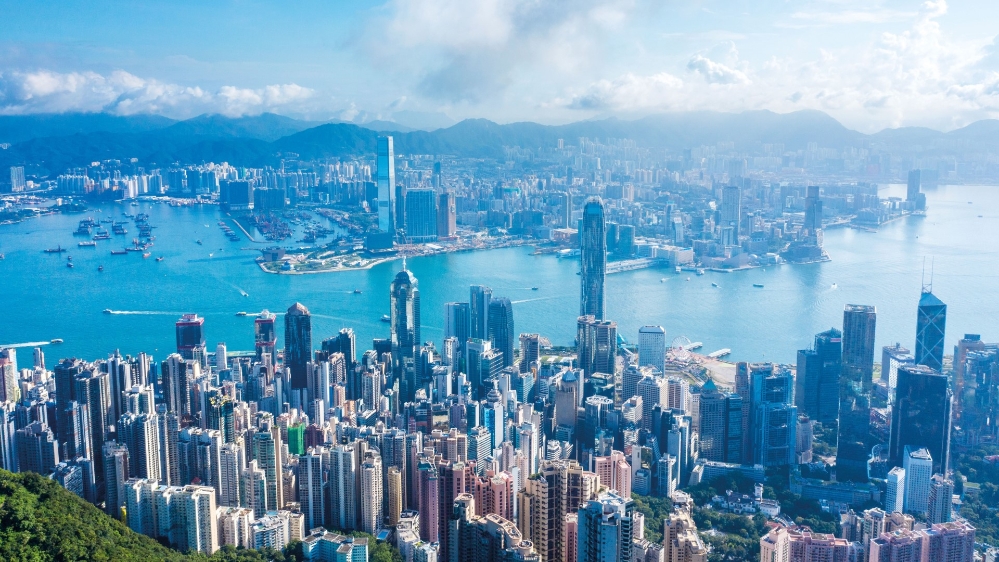By Tu haiming
When Xia Baolong, director of the Hong Kong and Macao Affairs Work Office of the Communist Party of China Central Committee, met with HSBC Group Chairman Mark Tucker last week in Beijing, he emphasized that it is China’s long-standing national policy to ensure the full and accurate implementation of the “one country, two systems” governing principle.
Xia’s remarks reaffirmed the central government’s commitment to “one country, two systems” and its recognition of Hong Kong’s unique advantages and status, as well as its confidence in the city’s future.
Profit-seeking and risk aversion are two of the main attributes of capital. Among the world’s major economies, China is one of the few economies wherein investors can best fulfill these two objectives. China has a population of 1.4 billion, more than the whole of Europe, and has a per-capita GDP of more than $10,000, representing a mega consumer market with an upper-middle income level. China is also the safest country in the world, with no risk of war or social unrest, nor risk of asset forfeiture. As a result, many foreign enterprises have been increasing their investments in China since the COVID-19 pandemic subsided. Corporate executives of world-renowned companies such as Tesla, Volkswagen and Intel have visited China more frequently. A recent report on China’s two-way investment shows that from January to July, the number of newly established foreign enterprises in China increased by 11.4 percent year-on-year, and an increase of 11 percent in total profit for foreign-invested enterprises.
Seeing the size of the Chinese mainland market and its comprehensive manufacturing supply chain, along with Hong Kong’s first-rate business environment and financial services, many foreign businesses, when investing in China, conduct their capital operations in the Hong Kong Special Administrative Region while operating their factories on the mainland. This explains the sizable business of HSBC and other financial institutions in Hong Kong.
Foreign businesses recognize five major advantages of Hong Kong.
First, Hong Kong is the only place on Chinese territory where common law is practiced, and its sound legal system offers strong protection for businesses.
Second, Hong Kong boasts a low and simple taxation system, with corporate income tax capped at 16.5 percent. Apart from having no value-added tax, the city also provides a number of tax incentives that augment the profit margin of businesses.
Third, as a major international financial center, Hong Kong offers diversified financial services, unrestricted currency convertibility and free flow of capital, providing great financial convenience for businesses.
Fourth, the city provides a favorable business environment, underpinned by its simple and expeditious company registration procedure, open and inclusive business culture, and convenient transport and logistics that helps businesses reduce operating costs.
And last, the city is a highly internationalized commerce center, with abundant international resources and talent who can facilitate businesses to tap the international market.
Reform and opening-up remains the key to China’s future. In the course of advancing Chinese-style modernization, the focus is on comprehensively deepening reform and pursuing high-level opening-up. Hong Kong has been playing and will continue to play a unique and irreplaceable role in the country’s opening-up
But above all, “one country, two systems” is Hong Kong’s biggest and most fundamental advantage. As long as this governing framework remains unchanged, the city’s advantages will last.
In his meeting with Tucker, Xia emphasized that the Chinese central government will continue to give full support to Hong Kong in maintaining its unique status and advantages, upholding a free, open and well-regulated business environment, and creating better conditions for enterprises to expand their operations in Hong Kong.
Xia’s remarks indicate that Hong Kong and the mainland will further open up to overseas investors. Entrepreneurs from all over the world will continue to enjoy the benefits of investing in Hong Kong and expanding their business in the region.
Reform and opening-up remains the key to China’s future. In the course of advancing Chinese-style modernization, the focus is on comprehensively deepening reform and pursuing high-level opening-up. Hong Kong has been playing and will continue to play a unique and irreplaceable role in the country’s opening-up.
Hong Kong has retained its traditional advantages while forging new ones. The central government is throwing its weight behind Hong Kong’s role in developing “eight centers”, playing a leading role in the Guangdong-Hong Kong-Macao Greater Bay Area development, and gaining access to the Regional Comprehensive Economic Partnership, all of which are intended to facilitate Hong Kong’s further integration into the global market and augment its development potential. Having the full backing of the central government, Hong Kong’s advantages are expected to strengthen.
There has been a spate of favorable appraisals on Hong Kong’s business environment from various authoritative international institutions. On Oct 16, the Canada-based Fraser Institute ranked Hong Kong as the world’s freest economy in its Economic Freedom of the World 2024 Annual Report. On Oct 3, the World Bank Group ranked Hong Kong among the top 10 performing economies in the world in its Business Ready 2024 Report.
Indeed, Hong Kong’s business environment has long been recognized as one of the best globally. Hong Kong doomsayers should face facts, rather than indulging in foolhardy illusions.
The author is vice-chairman of the Committee on Liaison with Hong Kong, Macao, Taiwan and Overseas Chinese of the National Committee of the Chinese People’s Political Consultative Conference, and chairman of the Hong Kong New Era Development Thinktank.
Source: China Daily
https://res.youuu.com/zjres/2024/10/25/C7Lvra8JJRL5EGrV7KJNuIhZznHQIR0UPaO.jpg











扫描二维码分享到手机














